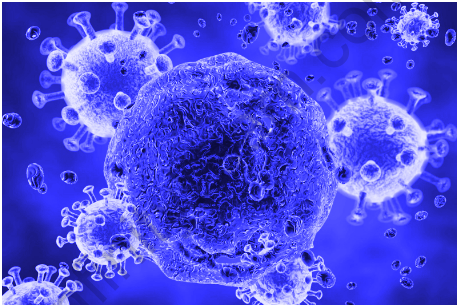Table of Contents

What is HIV? What is AIDS? Is HIV and AIDS the same? How are HIV and AIDS related to each other? The answers to all these questions are covered in this article. Let us dive into the discussion right away.
HIV which is known as the Human immunodeficiency virus.
These are different types of T cells, which are white blood cells that circulate throughout the body, detecting infections as well as flaws and irregularities in other cells.
HIV seeks out and infiltrates CD4 cells, which it then uses to multiply the virus. As a result, the cells are destroyed, and the body’s ability to fight various infections and diseases is harmed. This raises the risk of opportunistic infections and various cancers, as well as their severity.
It’s worth mentioning, too, that some people might have HIV for a long time without showing any signs or symptoms.
Although HIV is a lifelong illness, there are medicines and tactics that can stop the virus from spreading and the infection from developing.
AIDS:
The human immunodeficiency virus (HIV) causes acquired immunodeficiency syndrome (AIDS), a chronic, potentially fatal disease (HIV). HIV impairs your body’s ability to fight infection and disease by destroying your immune system.
Factors that cause HIV
- When HIV-infected body fluids come into touch with a permeable barrier in the body or small gaps in moist tissues in locations like the genitals, the virus can spread.
- Some of the mediums are blood, semen, vaginal fluid, breast milk, etc.,
- The primary and the main cause of transmission of HIV is vaginal intercourse and sharing the injected drugs.
- There is also the possibility of transmission through blood transfusions, however, the risk is extremely minimal when blood donations are properly checked.
Undetectable HIV
- HIV can only be spread through bodily fluids containing a specific quantity of the virus. If a person’s HIV levels are undetectable, the virus cannot spread to another person.
- The fact that undetectable quantities of HIV are untransmittable is sometimes referred to as a shorthand:
- When the amount of HIV in the body is so low that a blood test cannot detect it, doctors consider it undetectable.
Symptoms of HIV
- A person when meets HIV the viruses start to multiply.
- Slowly the immunity of a person is decreased.
- Health starts deteriorating from fever, fatigue, diarrhoea, weight loss, yeast infections, and pneumonia
- These symptoms progress to AIDS
Symptoms of AIDS
- When you get AIDS, your immune system is seriously harmed.
- You’ll be more susceptible to opportunistic infections and malignancies, which are diseases that would not normally cause illness in someone with a sound immune system.
- It causes Recurring fever, sweats and chills, chronic diarrhoea, weakness, weight loss, fatigue, swollen lymph glands, white spots, and lesions in the mouth.
Spread of HIV
- By engaging in sexual activity. If you have vaginal, anal, or oral sex with an infected partner whose blood, sperm, or vaginal fluids enter your body, you may get infected. The virus can enter your body through mouth sores or small tears that occur during sexual intercourse in the rectum or vagina.
- By exchanging needles, for example. Sharing contaminated IV drug accessories (needles and syringes) increases your chance of contracting HIV and other infectious diseases like hepatitis.
- Blood transfusions are to blame. The virus can be spread through blood transfusions in some situations. Because hospitals and blood banks in the United States currently test the blood supply for HIV antibodies, the risk of infection is quite low.
- Breast-feeding or throughout pregnancy or delivery. Mothers who are infected can pass the virus on to their children. HIV-positive mothers who receive treatment for the illness during pregnancy can dramatically reduce the risk to their unborn children.
Perceptions about the spread of HIV
- HIV is a big dilemma to understand that some actions spread HIV and some don’t. In the previous paragraph, we learned how HIV spreads.
- Now, let us understand the actions that do not spread HIV from an infected person.
- HIV infection cannot be contracted through normal interaction. That means you can’t get HIV or AIDS from someone who has it by hugging, kissing, dancing, or shaking hands with them.
- HIV is not transmitted through the air, water, or bites of insects.
Prevention and treatment for HIV
If you have HIV, taking antiretroviral medication can prevent your partner from contracting the infection. You won’t be able to spread the virus to others if your viral load remains undetectable – a blood test shows no virus.
Using TasP entails taking your medication exactly as directed and visiting your doctor on a regular basis.
Contact your doctor or go to the emergency room if you fear you’ve been exposed to sex, needles, or at work. Taking PEP as soon as possible, ideally within the first 72 hours, will drastically minimize your chances of contracting HIV. You must take the drug for a total of 28 days.
Crack NEET with Result-Oriented Learning Program from Infinity Learn.
FAQs:
Write the abbreviations of HIV and AIDS
HIV- Human immunodeficiency virus AIDS-acquired immunodeficiency syndrome
What is an undetectable virus?
HIV can only be spread through bodily fluids containing a specific quantity of the virus. If a person's HIV levels are undetectable, the virus cannot spread to another person. The fact that undetectable quantities of HIV are untransmittable is sometimes referred to as a shorthand: When the amount of HIV in the body is so low that a blood test cannot detect it, doctors consider it undetectable.
Infinity Learn App
Now you can find answers to all your subject queries & prepare for your Exams on our Educational App – Infinity Learn.







